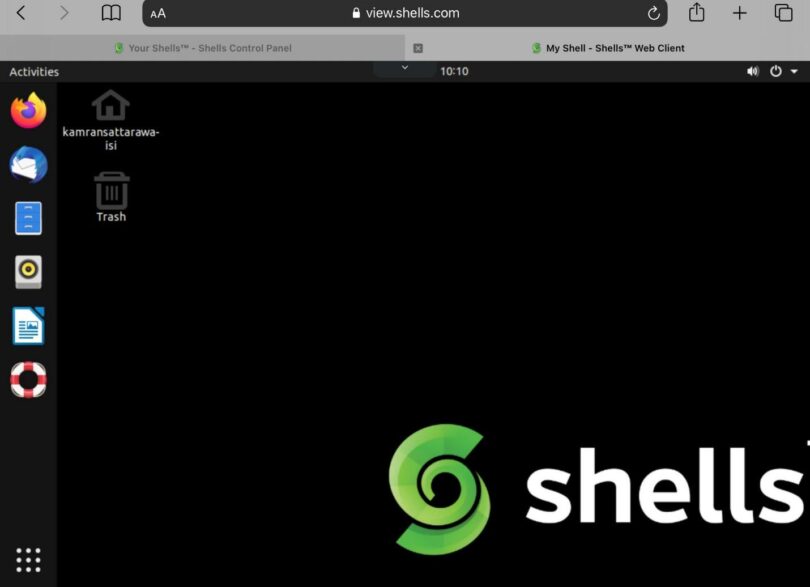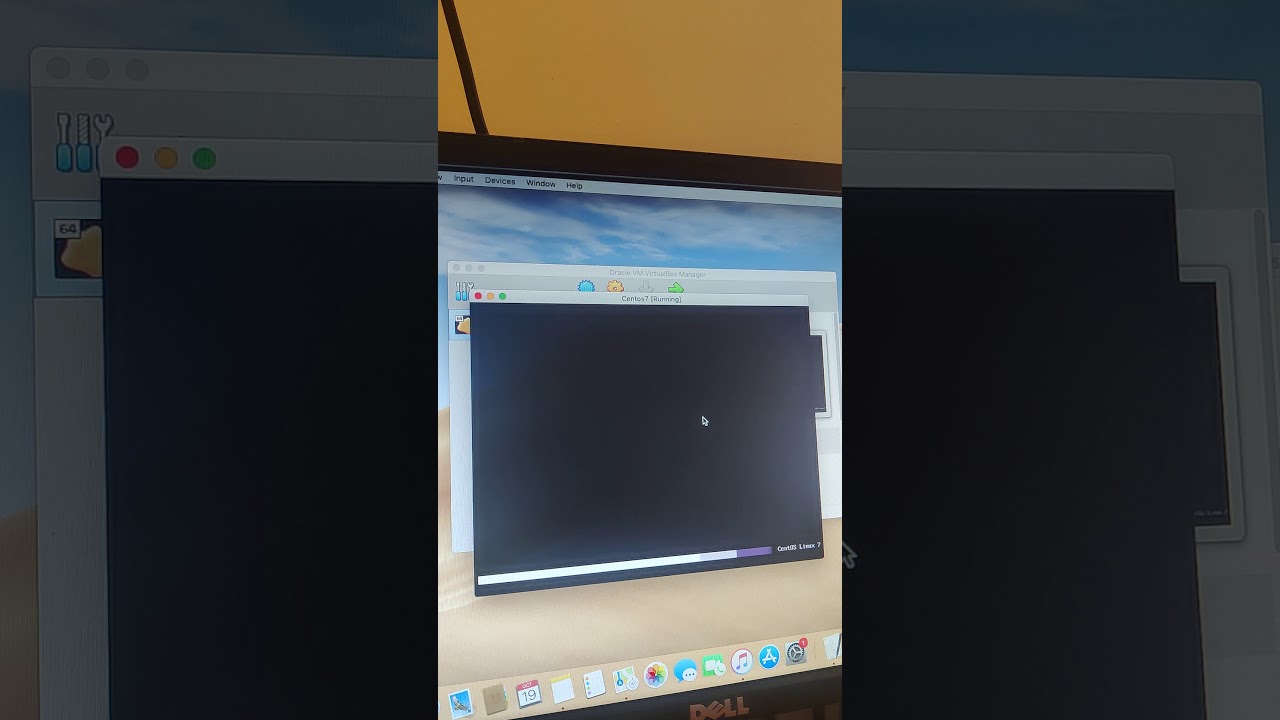
- VIRTUAL PC LINUX INSTALL
- VIRTUAL PC LINUX FULL
- VIRTUAL PC LINUX WINDOWS 10
- VIRTUAL PC LINUX PRO
- VIRTUAL PC LINUX PC
This approach increases the host's security profile. It also meant that the office manager who works at this computer would use Linux for all normal activities such as email, web access, document and spreadsheet creation with LibreOffice. That approach meant that I wouldn't need to do a completely new installation of Windows or any of the existing application software.
VIRTUAL PC LINUX INSTALL
I decided to install a new SATA SSD in the host and use the existing SSD with Windows on it as the storage device for the Windows VM. The physical computer already had a 240GB NVMe m.2 storage device installed in the only available m.2 slot on the motherboard. No one should need to provide their name, phone number, and birth date in order to register software.
VIRTUAL PC LINUX WINDOWS 10
Also, Windows 10 requires enough information when setting it up on a new system or after an installation to enable crackers to steal one's identity, should the Microsoft database be breached.
VIRTUAL PC LINUX PRO
The primary ones that apply to this case are that I would hate to pay for another Windows license – Windows 10 Pro costs about $200 – to install it on a new VM. It is important to understand that I have an extreme dislike for Windows for multiple reasons. This set of circumstances, along with a recent security scare, made it highly desirable to convert the host running Windows to Fedora and to run Windows and the accounting program in a VM on that host. This financial application is not special, and a better Linux program could easily replace it, but I've found that many accountants and treasurers are extremely reluctant to make changes, so I've not yet been able to convince those in our organization to migrate. This program runs on the office manager's computer on Windows 10 Pro, which came preinstalled. I do, however, volunteer for an organization that uses one financial program that requires Windows. Never have I ever used Windows as my primary operating system on any of my personal computers or even in a VM to perform some obscure task that cannot be done with Linux. I have even used VirtualBox to test the creation of a Windows guest host. I use VirtualBox frequently to create virtual machines for testing new versions of Fedora, new application programs, and lots of administrative tools like Ansible. If oldsys has been an EFI booted system, change VM settings of oldsys in "system" to "activate EFI" In VirtualBox, plug in oldsys.vmdk at virtual SATA controller of VM oldsys. VBoxManage internalcommands createrawvmdk -filename ~/VirtualBox\ VMs/oldsys/oldsys.vmdk -rawdisk /dev/sdbĬhange owner of oldsys.vmdk from root to yours.Ĭreate udev rule to allow yourself raw disk access, for example
VIRTUAL PC LINUX FULL
The downside is that I have no idea if the CODA servers will run nicely when in a container - so putting them into a full VM may be safer. The charme of an LXC setup would be that it does not need as much resources. The various partitions and LVM LVs can, however, be mounted on the new host computer quite well - the data are there, and once I even accidentally booted the new host computer with the old disk as "userland" (new kernel, old userland) - worked, so the systems are quite similar.
VIRTUAL PC LINUX PC
The host computer is very restricted concerning hardware capabilities, so just cloning the disk via dd will not work - not enough space (!) (don't ask why :-/ - a rather strange setup).įurthermore, the old PC used LVM also. I cannot (easily) get the data out of the "raw" vice partitions, so just running a container might be the easiest way. To clarify matters, the main reason I need the harddisk to run some kind of virtual machine is that the old computer was the main coda server of a small coda cluster. Is this possible? My experience with VM deployment is rather limited.

I do not know yet if KVM or LXC is a better choice, but would prefer LXC because the host PC is rather slow.

Is this possible to do without first having to convert the disk to an image file, i.e. Now I want to revive the old PC, but as a VM. I transplanted the disk into another Linux machine and found that everything was readable. A Linux PC currently died due to a motherboard failure.


 0 kommentar(er)
0 kommentar(er)
